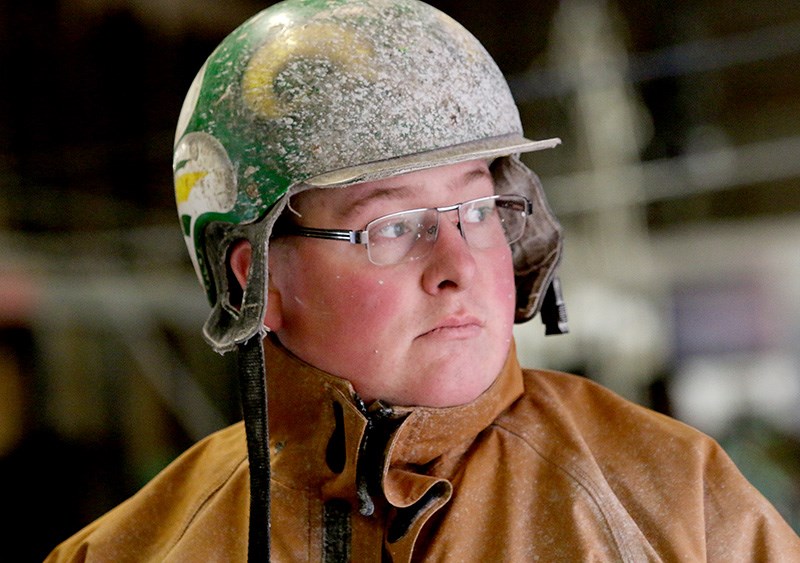Port Coquitlam’s Christopher Lancaster is riding the family business to success.
The 28-year-old graduate of Riverside secondary school is a finalist as a future star of the O’Brien Awards, the top honours for standardbred horse racing in Canada, that will be presented in Mississauga, Ont., on Saturday.
The recognition is a reward for the long days Lancaster puts in at the barns at two harness racing tracks in Alberta — Century Downs in Calgary and Century Mile in Leduc — and at Fraser Downs in Cloverdale. More importantly, it’s affirmation he made the right decision to turn his back on a potential career painting cars and, instead, follow the footsteps of his grandfather and father to the track, trading, training and racing horses.
Not that Lancaster was unfamiliar with life and toil in the paddocks. He pretty much grew up there, as his dad, Ron, trained horses then started shoeing them at tracks in Ontario before working his way west to eventually settle in British Columbia.
“It’s the life of a gypsy,” said Lancaster, who divides his year equally between the three tracks as the standardbred racing season progresses.
In fact, Lancaster spent so much time with his dad behind the backstretch, he earned the nickname “Cub,” to Ron’s “Bear.”
At 12, Lancaster climbed into a sulky for the first time. He was enthralled.
“It was exciting,” Lancaster said.
So much so, when Lancaster graduated from Riverside in 2009, he decided his chosen path to study automotive paint in college wasn’t for him, and headed to Alberta to begin his apprenticeship as a standardbred trainer. He hooked up with one of the best in the province, Kelly Hoerdt, who’s won more than 3,000 races as a driver and trainer.
Lancaster learned the drudgery of cleaning out stalls and feeding horses beginning at 5:30 in the morning, grooming them, caring for their aches and pains, then harnessing them up to the two-wheeled cart for runs around the track to prepare them for the evening’s racing card.
He also gained insight into the wheeling and dealing of horses that pays the bills, how to spot a horse with potential in a claims race and then turn it into a winner that can then be sold at a profit.
Lancaster, who’s spending the winter season at Fraser Downs, said while the days with his stable of eight horses are long, they don’t feel like work.
“It’s a lifestyle,” he said.



